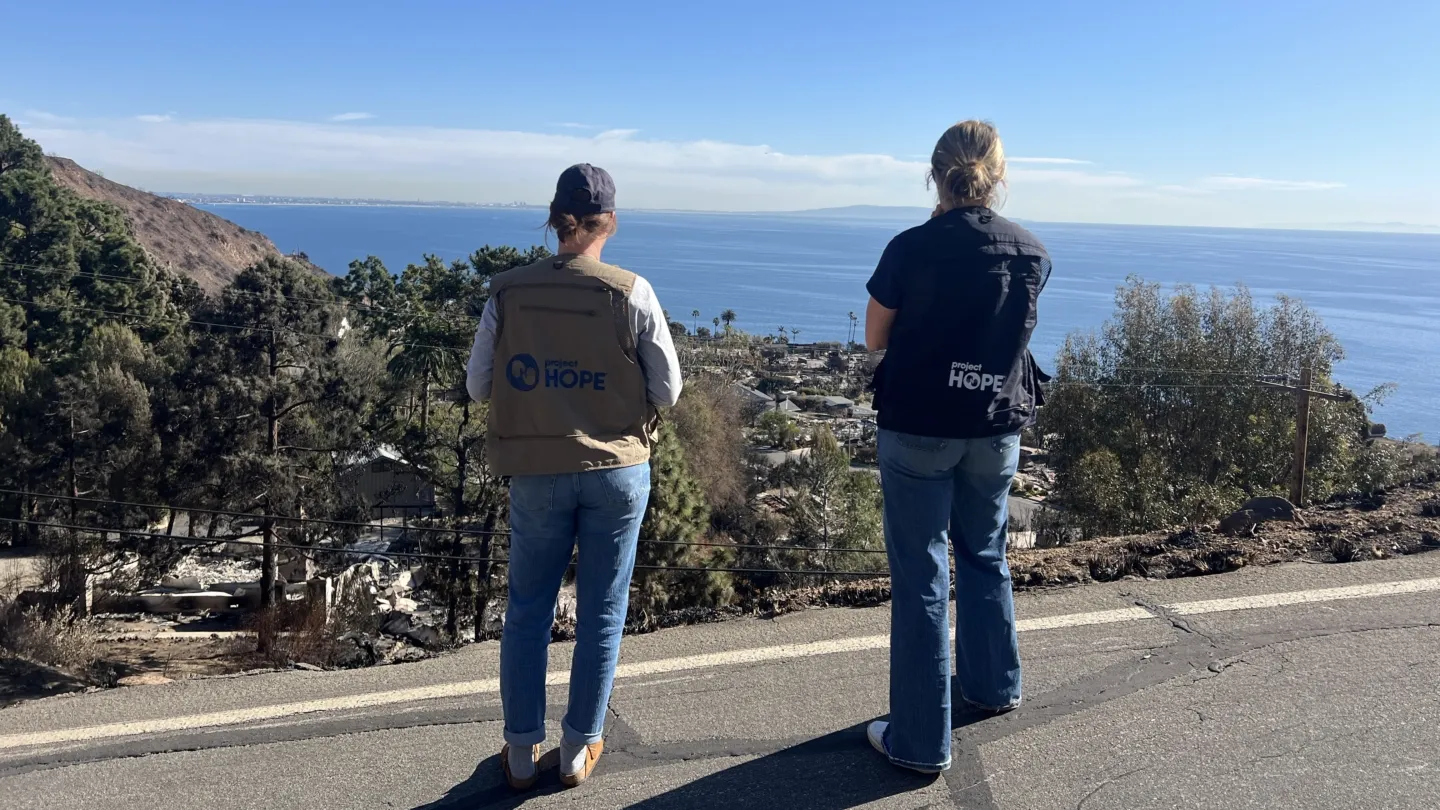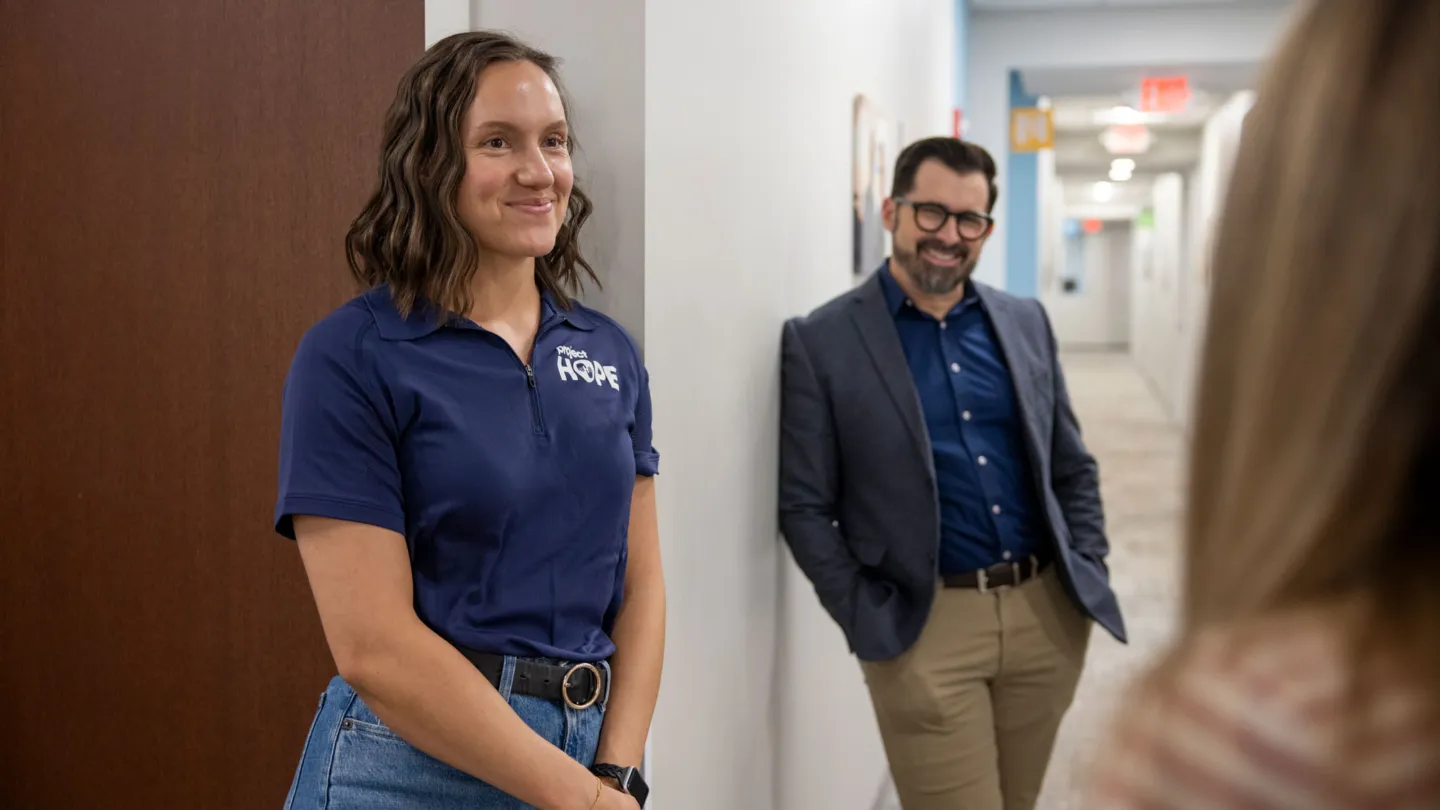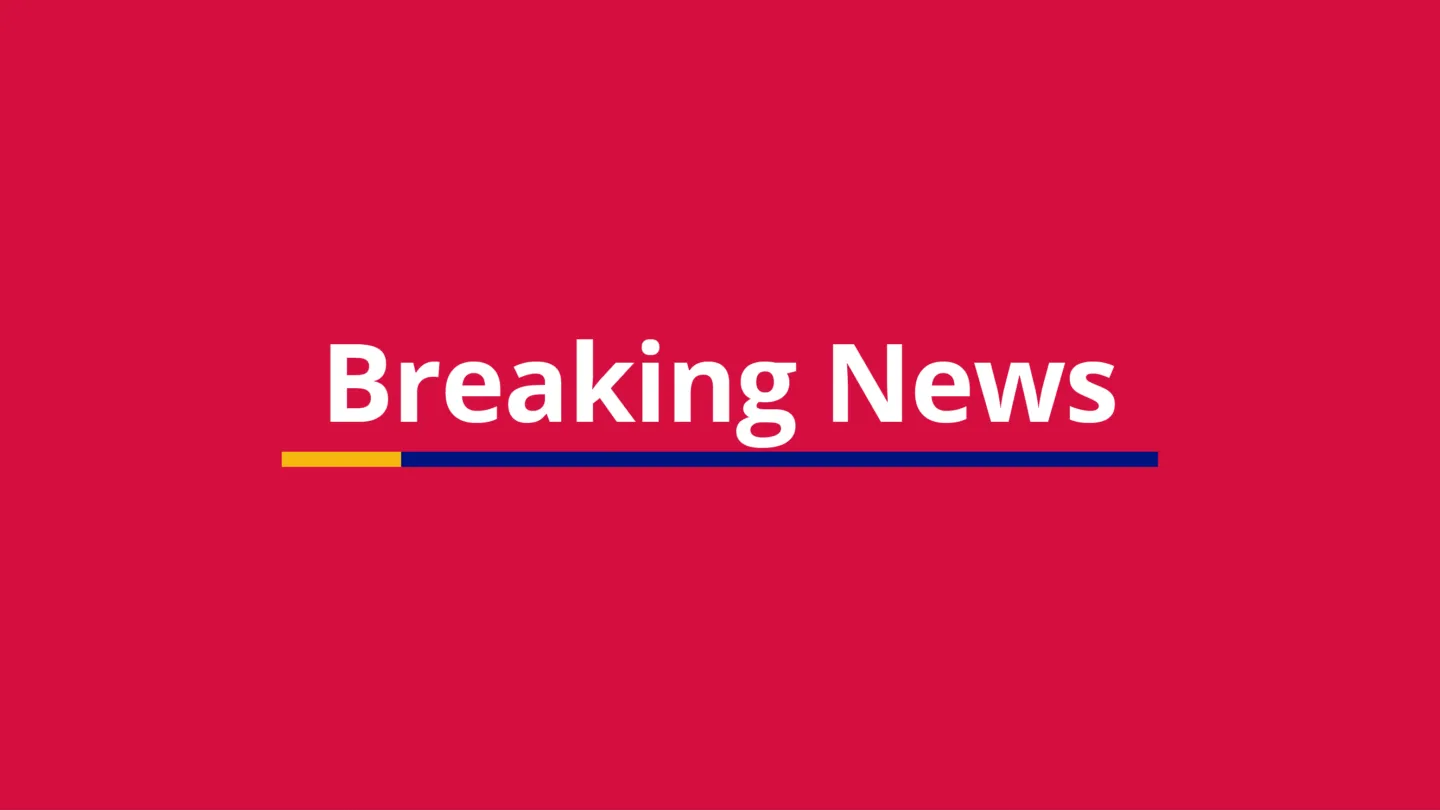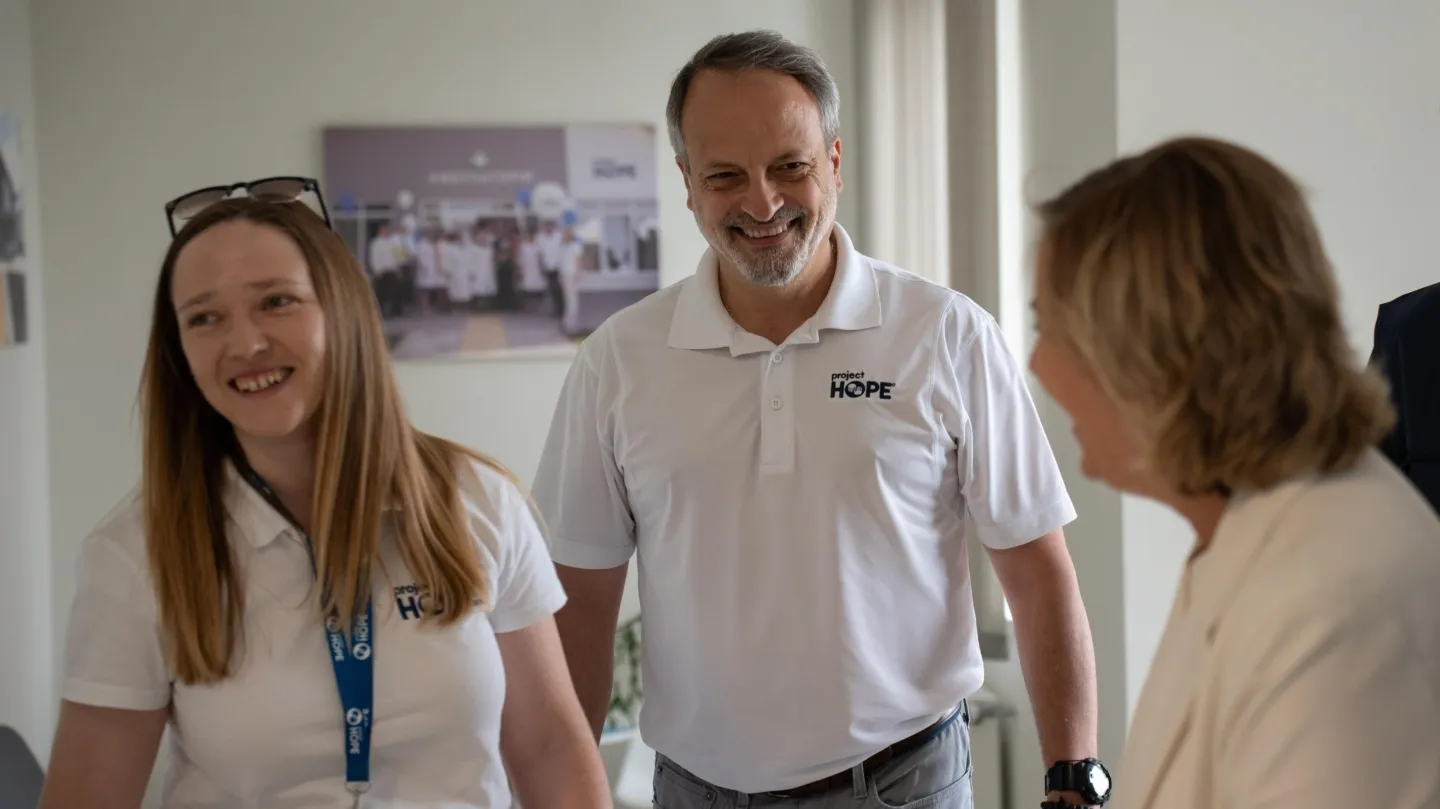Mental Health in Focus: Deepening Los Angeles Wildfire Response

In the aftermath of the historic wildfires that tore through Southern California in January, Project HOPE provided immediate relief to thousands of fire-affected residents, distributing air purifiers, filters, personal protective equipment, hygiene and shelter items, re-entry kits, and Psychological First Aid items for children, in addition to supporting health clinics and mobile medical units across the county. Over the past five months, as Los Angeles transitions from response to recovery, Project HOPE has identified a growing mental health crisis – particularly among children, caregivers, older adults, and frontline workers – and is shifting its focus to provide long-term, trauma-informed mental health care.
This Mental Health Awareness Month, Project HOPE has launched several programs in partnership with trusted community-based organizations. These efforts are centered on healing, connection, and culturally conscious care for those historically underserved or disproportionately impacted by the wildfires.
Community-based partners and programs include:
- An eight-week psychosocial support program with the Santa Monica-Malibu Unified School District to help students process trauma, build emotional resilience, and reconnect with their peers in a safe, supportive environment.
- A series of mental health and resilience trainings with Friends of the Children – Los Angeles for mentors serving youth and families impacted by the fires as well those impacted by the foster care system.
- Emotional wellness sessions for impacted members of the elderly Black community at a local community center focused on developing mindfulness and coping techniques.
- Mental health and resilience training for executive leaders serving Native communities in partnership with the United American Indian Involvement (UAII).
- Trauma-informed resilience training for staff working with the LGBTQIA+ community.
Every group served by Project HOPE’s mental health team receives a tailored Mental Health and Psychosocial Support (MHPSS) assessment. These community-level assessments inform programming and provide crucial insights into the long-term mental health needs across Los Angeles’ diverse populations.
“In the wake of the LA wildfires – and amidst a backdrop of longstanding systemic and generational challenges in the region – it’s become even more clear that mental health support must be a priority, not an afterthought,” said Stacie Yeldell, a mental health advisor with Project HOPE. “What I value most about Project HOPE’s approach is our commitment to going beyond one-size-fits-all solutions. Through our mental health and psychosocial support assessments, we gain a bird’s-eye view of each community’s unique needs, allowing us to craft personalized, culturally grounded programming capable of creating lasting impact.”
Project HOPE has reached over 17,000 fire-affected community members and remains committed to supporting affected residents during this next chapter of healing and resilience.
Team members are available for interviews for more information about Project HOPE’s mental health programming in LA. For media inquiries, contact media@projecthope.org



